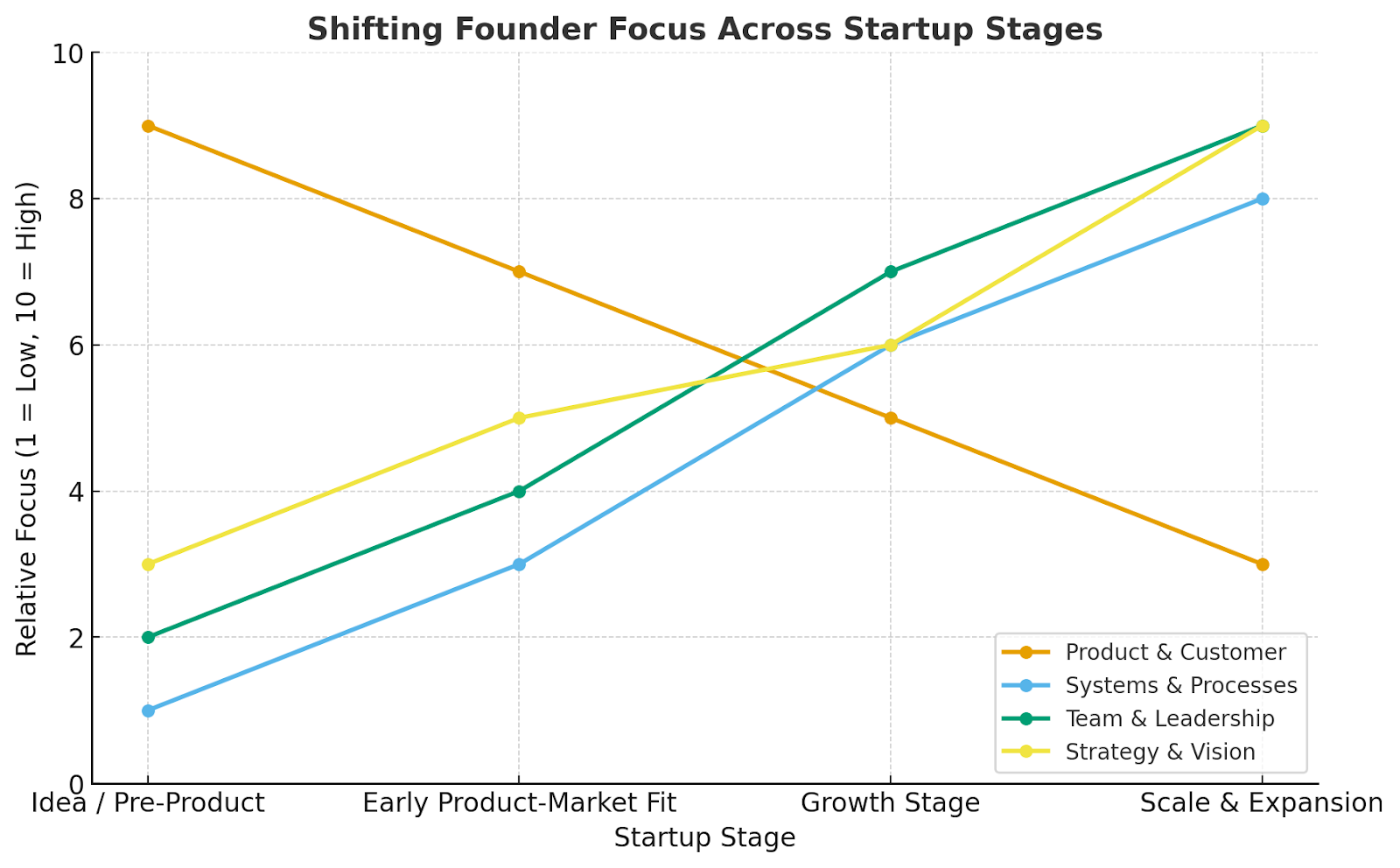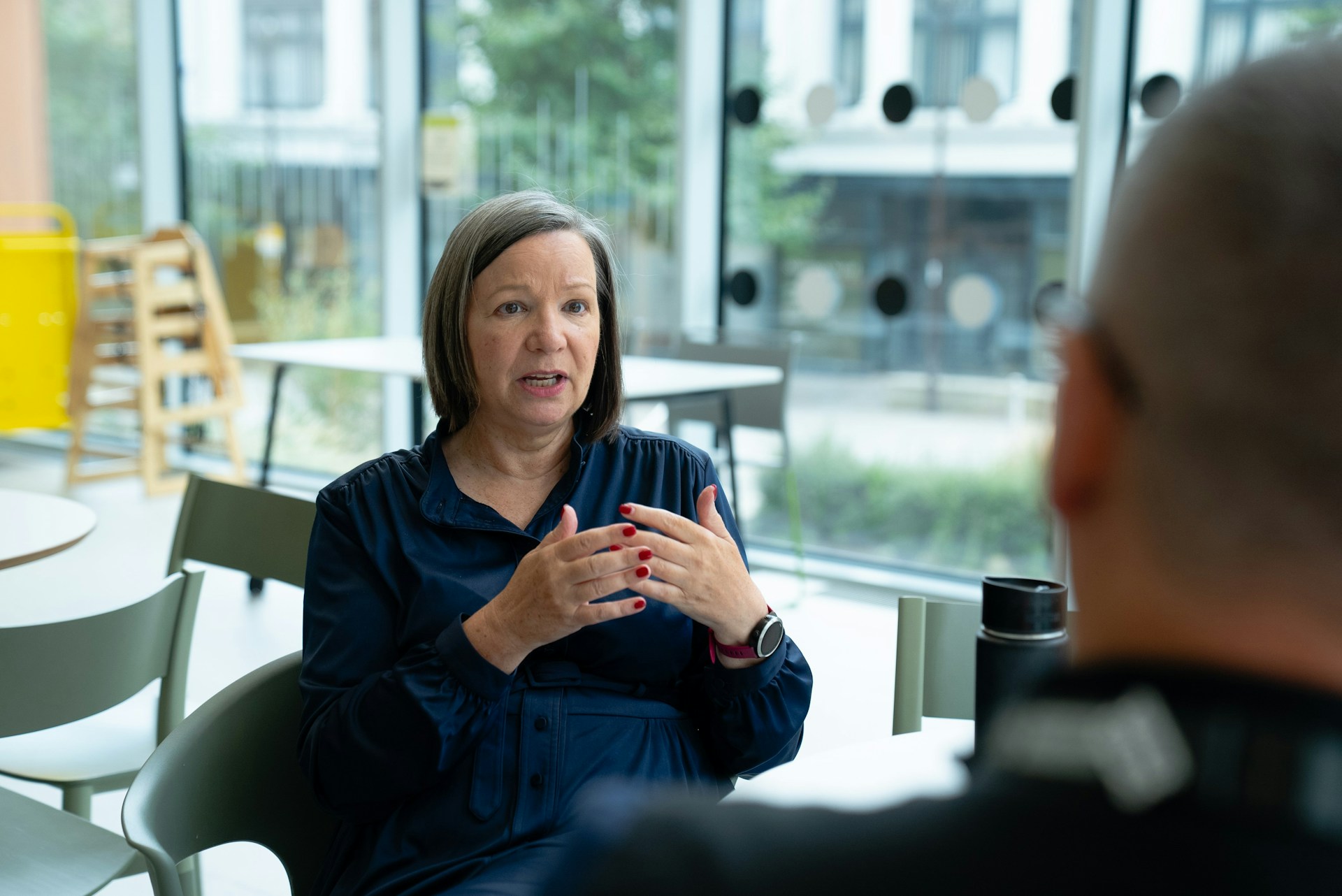Switch off Founder Mode If You Want To Scale Your Startup Successfully

If you started a company, you already know the thrill. Being scrappy, wearing a hundred hats, improvising on the fly, moving faster than bigger competitors, and personally steering every detail — that founder’s mindset is what gets your idea off the ground. It’s what gets you through the early nights of coding, selling, pitching, and firefighting. It’s intoxicating, it works, and it’s often the reason your business exists in the first place.
But here’s the uncomfortable truth: the same mindset that makes you unstoppable early on can hold you back later. If you want to scale, you can’t think like an early-stage founder forever. The founder’s mindset becomes a ceiling. And unless you change, your company will hit that ceiling hard.
This isn’t a call to abandon what makes you special. It’s a reminder that scaling requires evolution, not just of your product and business model, but of how you think and how you lead.
Why the Founder Mindset Works So Well in the Beginning
In the early stages of a startup, having a founder’s mindset is a superpower. You’re obsessed with your product and your customer, and that obsession translates into speed and focus. When resources are limited, your willingness to wear every hat — sales, product, finance, customer support—keeps the company alive.
You thrive in ambiguity, because ambiguity is the only thing that exists when the market hasn’t validated you yet. Processes don’t matter; urgency does. Intuition and gut calls are often the only available compass when there’s little data and no precedent. And your insistence on control, on being involved in every decision, makes sense when the company is tiny and every misstep could be fatal.
The founder mindset is about hustle, ownership, obsession, and risk-taking. Without those qualities, most startups wouldn’t even make it to product-market fit.
How the Founder Mindset Turns Into a Trap
The trouble begins when your company grows. Complexity multiplies. Customers don’t just want scrappy features, they expect reliability. Employees don’t just want inspiration, they need structure. Investors don’t just want vision, they demand predictable numbers.
If you stay locked into the founder’s mindset, you risk becoming the bottleneck. You try to do everything yourself, but with dozens or hundreds of moving parts, that’s impossible. You rely too much on gut instinct, but scaling requires metrics, systems, and forecasts. You stick with informal, reactive processes, but bigger teams and larger customer bases demand consistency and documentation.
You also risk burnout. Carrying the weight of every decision, every detail, and every customer issue becomes unsustainable. Worse, you risk losing good people, because talented employees won’t stay if they aren’t empowered to lead, decide, and execute without your constant oversight.
This is not a fringe issue. Research shows how common the trap is. According to McKinsey, about 78% of companies that find product-market fit still fail to scale. The approaches that succeed in the early days are often not the ones that sustain growth. And only about 50% of founders remain CEOs after three years in business. By the time a company reaches IPO, the fraction drops to around 25%.
It’s not that these founders weren’t capable. It’s that the mindset that carried them to product-market fit wasn’t adapted for the scaling phase.
The Double-Edged Sword of Founder Traits
To see the pattern clearly, think about the founder mindset traits themselves. The very qualities that are assets early on can become liabilities later.
Take obsession with the product and customer. Early on, your personal immersion in every customer conversation ensures tight feedback loops. At scale, though, you can’t personally track every complaint or feature request. You need systems and teams to capture and act on feedback at volume, or else you’ll miss the forest for the trees.
Or consider wearing many hats. In the early days, being a jack-of-all-trades kept costs low and decisions fast. But as the company grows, trying to do everything dilutes your impact and creates chaos. You need specialists, people who are better at sales, operations, finance, or product than you are.
Tolerance for ambiguity is another great early trait. You need to be comfortable improvising when nothing is certain. But scaling isn’t about improvisation, it’s about predictability. Customers at scale expect consistency, reliability, and professionalism. Investors expect forecasts you can hit. Ambiguity must give way to clarity.
Even control, which is vital early on, can become toxic later. When you’re five people, your fingerprints on everything are essential. When you’re 50 or 500, micromanaging means decision bottlenecks, delays, and frustrated employees. What once preserved quality now destroys it.
Risk-taking and scrappiness also flip. At the beginning, bold bets and duct-tape solutions get you moving. But as stakes grow, risks have bigger consequences. Scrappy shortcuts create technical debt, financial holes, or reputational damage that can cripple you at scale.
In short, the founder mindset traits don’t vanish — they just need to be expressed differently.
The Shifting Focus of a Founder Across Stages
To really understand why a mindset shift is required, it helps to look at how a founder’s focus naturally changes as the company grows. Early on, all the focus is on survival and product. As time progresses, the focus must shift upward toward organization, systems, and strategy.
- Idea and Pre-Product Stage: At this point, your focus is validation. You’re consumed with proving the idea, testing the market, building the first prototype, and convincing the first users. Hustle and obsession are everything.
- Early Product-Market Fit Stage: Once you’ve got a product and a few customers, your focus shifts to iteration. You’re still close to the product, but you also begin thinking about repeatability. Metrics like retention and unit economics start to matter. It’s here that processes need to appear, even in embryonic form.
- Growth Stage: As you secure funding and expand your team, your focus must shift again. It’s no longer just about the product, it’s about building the company. Hiring leaders, delegating decisions, establishing systems, and defining culture deliberately. If you don’t, you remain the bottleneck, and chaos reigns.
- Scaling and Expansion Stage: At this point, the company is a large organism. Your focus must move from execution to strategy. You think about culture at scale, operational efficiency, governance, and long-term resilience. Your role becomes less about doing and more about enabling, guiding, and steering.
The trap happens when founders fail to move along this curve. They keep thinking and acting like it’s still the idea stage, even when the company is years beyond that point. That’s when cracks start showing.

Why the Mindset Shift Is Not Optional
Failing to evolve your mindset creates multiple risks. Growth slows because processes break under strain. Customers churn because experience becomes inconsistent. Employees leave because they aren’t trusted or empowered. Investors lose faith because you can’t deliver predictability.
Numbers back this up. McKinsey reports that investors attribute about 65% of portfolio company failures to people and organizational issues, not product. In other words, scaling is less about building the right feature and more about building the right company.
And then there’s you. Burnout is real. Carrying everything personally may feel noble, but it’s unsustainable. A founder who doesn’t evolve becomes exhausted, indecisive, and reactive. At that point, either the board forces a leadership change, or the business stagnates until it collapses.
How Founders Can Begin the Shift
So how do you shift? Slowly, deliberately, and by recognizing signals.
When you catch yourself thinking “I need to do this myself” or “If people just worked like I do, it’d be fine,” take it as a red flag. Those are signs that you’re clinging to early-stage patterns in a late-stage environment.
Start by trusting others more than feels comfortable. Hire people who are better than you in key domains. Let them lead, and resist the urge to micromanage. It will feel like losing control, but in reality it’s gaining leverage.
Document and delegate. Even if you’re small, begin writing down how things are done. It’s not bureaucracy, it’s insurance. It ensures knowledge spreads and frees your brain for bigger problems.
Shift from intuition-driven decisions to data-driven ones. Keep your gut feel, but back it up with metrics. Build dashboards, run experiments, track retention, measure efficiency. At scale, you can’t steer by instinct alone.
And most importantly, change how you see yourself. Early on, your product is the product. Later, your organization is the product. As Foundation Capital puts it, by the time you reach around $10M ARR, “the company itself becomes the product.” That mental shift, from building a thing to building an organization, is the essence of scaling.
Conclusion
This is not an argument against the founder mentality. It’s a reminder that clinging to it too long turns it into a liability. Your passion, scrappiness, and control got you here. But if you don’t evolve, they’ll keep you from going further.
Think of it less as abandoning your founder mindset, and more as upgrading it. You’re not giving up the traits that define you, you’re redirecting them toward building a scalable company. You’re not losing control, you’re trading personal control for organizational control.
Scaling isn’t selling out. It’s growing up.
The best founders are those who know when to let go, when to trust, and when to shift their identity from the product’s creator to the company’s builder.
If you want to avoid hitting the ceiling, don’t just build your product. Build your organization. And most importantly, evolve your mindset along the way.
Read - Why Startups Need More Soft Skills Now Than Ever Before

square.jpg)










